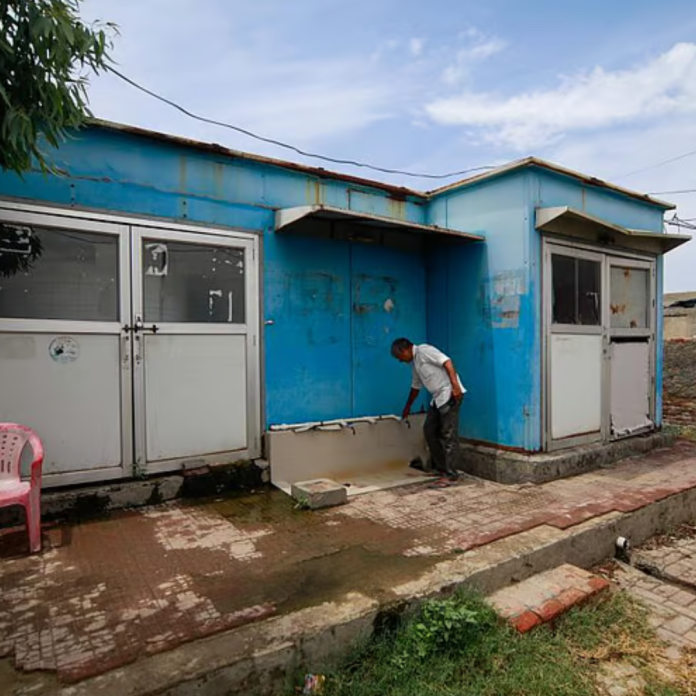Several villages in Punjab are grappling with a severe public health crisis, marked by a significant rise in non-communicable diseases, including cancer, heart disease, and diabetes. In particular, the village of Pakki Tibbi in the Muktsar district has become a hotspot for these illnesses, with residents suffering from a range of severe health issues.
With a population of about 2,000 people, Pakki Tibbi is plagued by widespread poverty and illiteracy, factors that exacerbate the burden of disease. “There are 65 active cases of non-communicable diseases like heart disease, stroke, cancer, diabetes, and chronic lung disease in the village,” said Sunita, the community health officer at the local health and wellness center.
Groundwater, the primary water source for villagers, is heavily polluted by industrial effluents and municipal waste. Although a reverse osmosis (RO) system was installed by the state government about ten years ago, it is only functional due to the villagers’ collective effort to fund its maintenance. However, only those living close to the system have access to clean water; others rely on contaminated groundwater or water from the Sirhind canal, which carries pollution from the Sutlej River, exacerbated by untreated industrial waste dumped into it.
Over the years, the canal water has become so toxic that it often contains animal carcasses and turns black during certain months. This water was once widely consumed but is now avoided by most villagers due to its contamination. “But now, we see the carcasses of animals floating in the water almost every other day,” said Trilochan Singh, a local resident.
In addition to the rise in cancer, Pakki Tibbi has witnessed 20-25 cancer deaths in the past year. While there are currently three active cancer cases reported, Sunita believes the actual number is likely much higher, as many villagers are unaware of their condition and are unable to afford medical tests. The lack of medical professionals in the village only worsens the situation. The wellness center is without a doctor, and villagers must travel 17 km to Abohar for medical help.
While the Mukh Mantri Punjab Cancer Raahat Kosh Scheme, designed to offer financial assistance to cancer patients, exists, it remains out of reach for many in Pakki Tibbi. “We will have to go to the district commissioner to avail the scheme. There is too much bureaucracy. Villagers are illiterate and struggle to fill up forms,” said Sukchain Singh, a farmer.
Aside from the increasing cancer cases, residents also suffer from premature aging and intellectual disabilities in children, with at least three children in the village showing signs of developmental challenges. This situation mirrors the struggles faced by other nearby villages like Gaunspur and Burj Mohar, where similar health issues are rampant.
Pakki Tibbi’s plight is a grim reminder of the devastating impact of industrial pollution and poor public health infrastructure on rural communities in Punjab.


